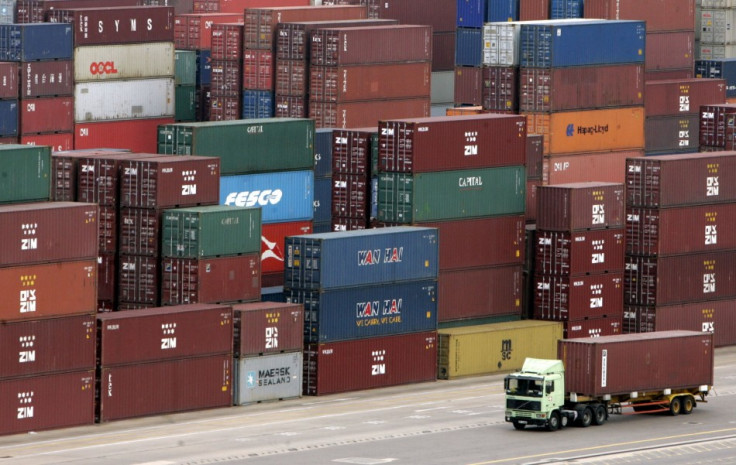UK Exports Grow in March as Trade Deficit Narrows

UK exports grew in March and the trade deficit between imports narrowed slightly, after British Chancellor George Osborne said in his budget he wants to increase the country's exports to £1tn by the end of the decade.
Strong growth in chemical exports to non-EU countries drove the overall boost to exports, with only minimal growth to EU countries leaving the number almost unchanged from February as the eurozone crisis continues to hinder activity on the continent.
"March's UK trade figures showed a bit of an improvement, although the external sector still looks likely to have dragged on GDP growth in the first quarter overall," Vicky Redwood, analyst for Capital Economics, said.
"The deepening crisis in recent days suggests that the near-term export outlook remains pretty poor, especially given the further rise in the pound."
Goods exports rose by 5.8 percent in March, to £26.4bn, according to the Office for National Statistics (ONS). Services exports grew by 1.2 percent to £15.5bn. Both were the highest nomial figures on record.
Non-EU exports rose by 12.1 percent, to £13.2bn, primarily because of chemicals, particularly pharmaceuticals to the US and China.
The overall trade deficit between exports and imports narrowed to £2.7bn in March, down £200m from the previous month.
Eurozone avoids recession
Eurozone GDP wiped its face in the first quarter, with flat growth of 0 percent at the start of the year, but individual economies such as Italy and Spain continue to be mired in recession.
There is ongoing crisis in the single currency area, exacerbated by political deadlock in stricken Greece as politicians struggle to reach agreement and form a government.
Many believe Greece will soon exit the euro and return to the drachma because it will not be politically able to meet the tough austerity measures demanded of it by the EU and International Monetary Fund (IMF), who are bailing out the country to the tune of billions of pounds.
A disorderly exit and a default on Greece's vast debts would send a shockwave across Europe and the rest of the world, and threatens to drag other economies down with it.
While there is no resolution to the current issues in the 17-member eurozone British exports to the single currency area, its biggest trading partner, will likely remain flat.
UK austerity bigger problem than eurozone
Barclays, the UK's fourth biggest bank, has hit back at Osborne's assertion that it is the eurozone troubles alone that are hindering a British recovery and not at all to do with the austerity measures being imposed by the coalition government.
In a research note on the German GDP figures, which showed much better-than-expected growth of 0.5 percent in the first quarter, Barclays said: "The strong showing by the German economy clearly raises some doubt about claims by British officials that the UK recession is predominantly caused by the euro area crisis instead of austerity measures in the UK."
Osborne had told reporters ahead of an EU summit of finance ministers: "The British recovery has been damaged over the last two years not by Britain getting a grip on its public finances, but by uncertainty in the eurozone.
"It is that uncertainty, not austerity, that is doing the real damaged to the European economy, and indeed the British recovery."
© Copyright IBTimes 2025. All rights reserved.






















